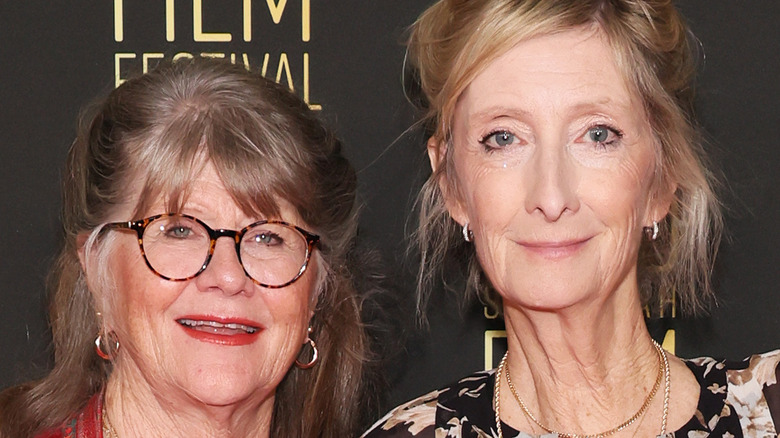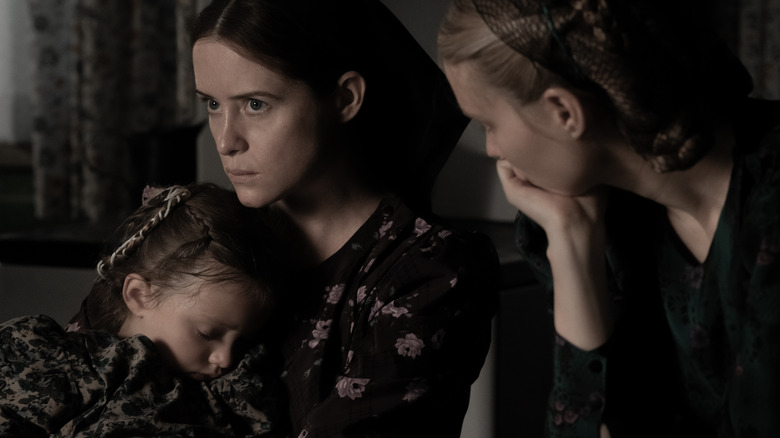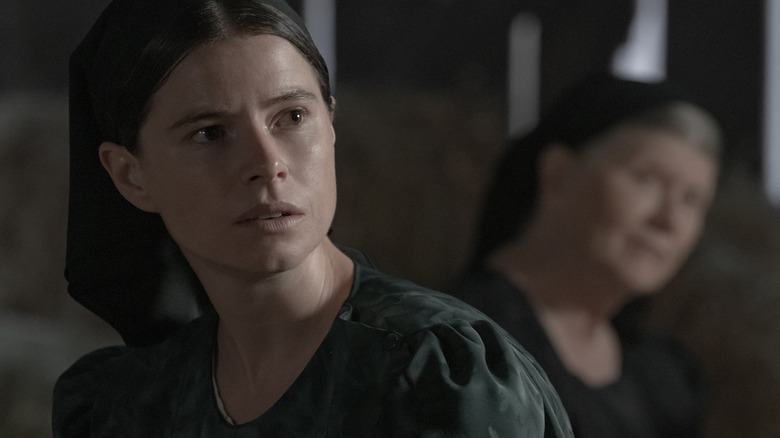Women Talking Stars On The Film's Discussion Of Transgender And Reproductive Rights - Exclusive
The release of "Women Talking" comes in the midst of a movement to protect reproductive rights that have been affected by the reversal of Roe v. Wade (per Now Toronto). Adapted from Miriam Toews' book of the same name, "Women Talking" depicts an "imagined response" to the series of horrific sexual assaults that happened in a Bolivian Mennonite community during the mid-to-late 2000s.
When asked about the relevance of the film to current events, director Sarah Polley told Variety, "I don't think there's a moment where this film wouldn't be relevant in some way ... Having a conversation about what we want to see and the world we want to build is a really interesting one to have right now because there are so many things going terribly wrong for women."
The film features the perspectives of women spanning three different generations. In an exclusive interview with The List, Sheila McCarthy and Judith Ivey, who respectively play elders Greta Lowen and Agatha Friesen, elaborated on how "Women Talking" opens up a much-needed dialogue on contemporary issues.
If you or anyone you know has been a victim of sexual assault, help is available. Visit the Rape, Abuse & Incest National Network website or contact RAINN's National Helpline at 1-800-656-HOPE (4673).
The film parallels the current reproductive rights movement
In "Women Talking," the women and girls of the Mennonite community, all survivors of sexual assault, decide they've had enough and vote to leave for their safety. "[Our characters are] casting a vote that is going to determine everything about our lives. It's almost a do-or-die situation," Sheila McCarthy said.
Judith Ivey added, "Sarah [Polley] has spoken extensively about how she wanted this to capture how a democracy begins by setting up [how] we're uneducated, we don't read, we don't write, but we knew to vote, and [we can] give everyone the right to speak up. Certainly in the United States, that's one of the things we're challenged with right now — trying to suppress voters' rights."
Polley told Now Toronto that similar to how the film shows women with different opinions coming together, she believes women can open up a dialogue on abortion. "You can come at the abortion debate with any number of personal feelings about abortion itself and still acknowledge the reality of what a world where abortion is illegal looks like," Polley said.
McCarthy reflected, "Films should be a mirror [of] what's going on in society. If nothing else, we hope that this film provokes conversation about reproductive rights, about Roe v. Wade, about every issue that's not necessarily named in the movie but you can certainly see the parallels to."
Women Talking features contemporary issues
Sheila McCarthy described the film's setting — the hayloft of a Mennonite community — as a "microcosm of the world," as the storyline features issues that are at the forefront of current discussions. Ona Friesen, played by Rooney Mara, is an expecting mother who chooses to stay single, while August Winter plays Melvin — a transgender member of the community.
According to Judith Ivey, these narratives help connect the audience with the storyline. "Because of that particular culture, you think you won't have anything in common," she said. "Very quickly you realize, 'It's the same thing we're talking about here in 2022.'"
When asked about her hopes for viewers' responses to "Women Talking," Ivey said, "I hope they take away what they need, because Sarah [Polley] has tackled so many themes that I'm sure it's going to speak to people in several different ways. When a need is served, then that means the door opens and change can happen."
McCarthy said, "It's called 'Women Talking,' so it's about finding your voice; leaving the theater after seeing this movie and going, 'I think they have a problem and maybe we need to talk about it.'"
"Women Talking" is in select theaters and will be released everywhere in January.


